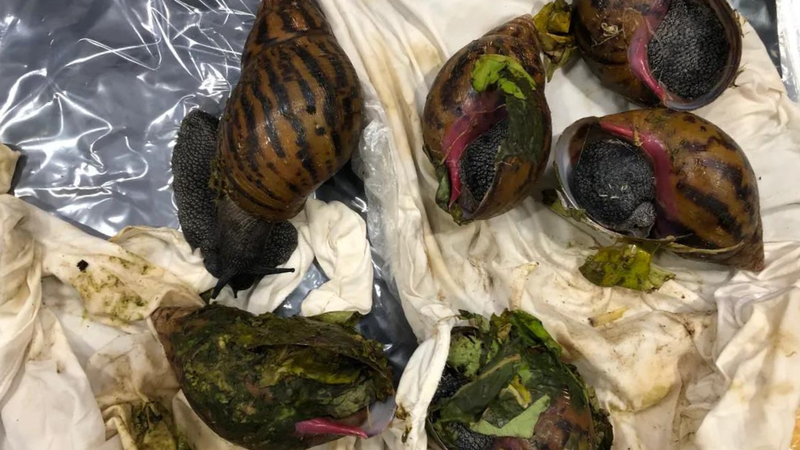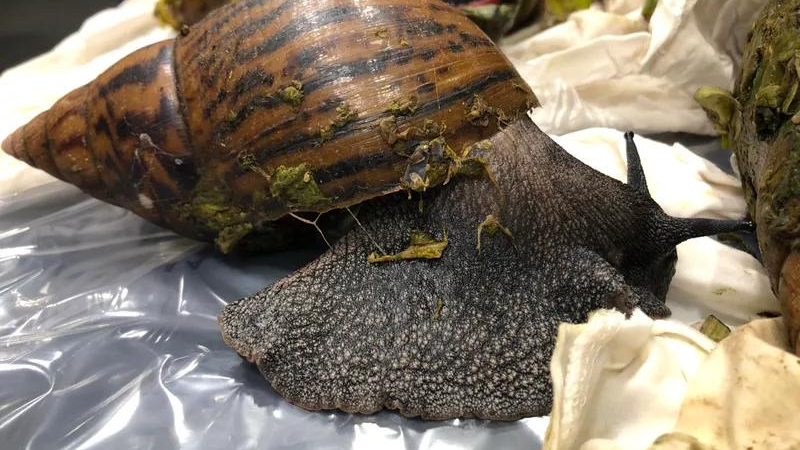
U.S. Customs and Border Protection picked up six invasive snails at Detroit Metropolitan Airport last week. The animals didn't get far. They were moving pretty slowly.
Six giant African snails were discovered inside the suitcase of a traveler arriving from Ghana, the agency announced Friday.

The snails are considered a prohibited organism in the United States, despite being raised for food and even kept as pets in other countries.
According to the U.S. Department of Agriculture, the snails reproduce quickly, laying up to 1,200 eggs in a year. The department also described them as “one of the most damaging snails in the world.”
The agency said the snails found last week were intended for direct consumption but added that they pose a significant health risk to humans and the environment. Giant African snails are known to carry a parasitic worm that can transmit meningitis to humans. And the fist-sized snails can eat through over 500 different types of plants and vegetables, flowers, tree bark — even the paint and stucco on a house, the agency said.
“Our CBP officers and agriculture specialists work diligently to target, detect, and intercept potential threats before they have a chance to do harm to U.S. interests,” said Port Director Robert Larkin. “The discovery of this highly invasive pest truly benefits the health and well-being of the American people.”
The CBP agents seized the snails after they were discovered so they could conduct further analysis.
The species is not exactly a stranger to American shores. The USDA said it took $1 million and 10 years to eradicate the species from Southern Florida in the 1960s.
The agency did not say what happened to the traveler who was carrying the snails or to the creatures themselves.


